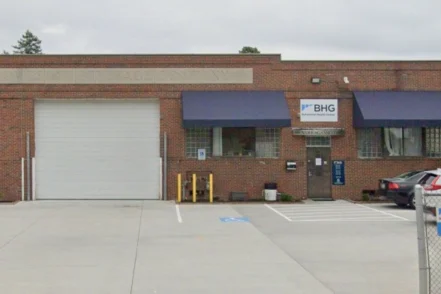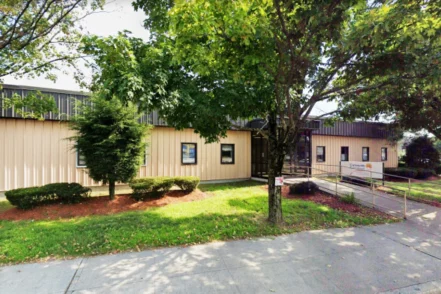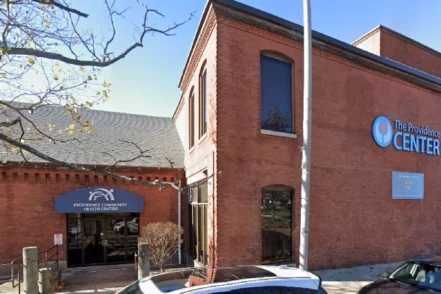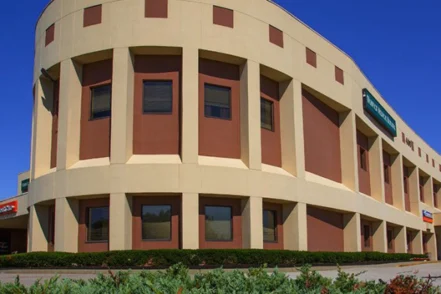About South Shore Mental Health Center
South Shore Mental Health Center offers a variety of services to help adults, seniors, and young adults with mental health issues. These services include dual diagnosis, adult program, elderly rehab, young adult rehab, outpatient rehab, cognitive behavioral therapy, experiential therapy, family therapy, group therapy, individual therapy, and trauma therapy. With so many services offered, South Shore Mental Health Center is sure to have a program that can help you or your loved one on the road to recovery.
Addiction Treatment Programs
Dual Diagnosis
A dual diagnosis is when you have a mental health diagnosis along with a substance use disorder. Getting integrated rehab in Rhode Island is essential to long-term recovery. Dual diagnosis programs may offer detox, inpatient treatment, and/or outpatient care. The key is that they provide integrated treatment for both mental health symptoms and substance use.
Adult Program
Adulting can be hard. When you choose an adult program in Rhode Island, you get the support you need to overcome addiction and build a successful life. Some of the common services will include counseling and classes on coping skills, emotional management, communication, and other key life skills. Adult programs can provide inpatient or outpatient treatment.
Senior Rehab
Older clients may find it more comfortable to choose a senior rehab in Rhode Island. Some of the common services will include counseling and classes on coping skills, emotional management, pain management, and other key life skills. Senior programs can provide inpatient or outpatient treatment.
Young Adult Rehab
Choosing a young adult rehab in Rhode Island can be a great way to learn new life skills while also addressing substance use. Some of the common services will include counseling and classes on coping skills, emotional management, communication, and other key life skills. Young adult programs can provide inpatient or outpatient treatment.
Insurance Coverage
Medicaid
When looking for ways to pay for rehab in Rhode Island, consider Medicaid if you are struggling to afford treatment. You’ll want to contact treatment centers to find out which ones accept Medicaid and make sure you get the right level of care, such as detox, inpatient, or outpatient treatment.
Private insurance
If you have private insurance, you can use it to help pay for substance use treatment in Rhode Island. Keep in mind that you’ll save the most using a center that’s in-network with your plan, and you might have out-of-pocket costs such as a deductible or copayment. Contact the insurer for more details.
Self-pay options
When you use self-pay for rehab in Rhode Island, you can choose any center you prefer. Self-pay involves using a medical loan from a bank or credit union, writing a check, or sending money electronically to the center. The fee structure may vary depending on the level of care.
Financial aid
In Rhode Island, financial aid programs can be a great option when it comes to paying for rehab, if you qualify. Paying for detox, inpatient rehab, or outpatient care is much easier if you get a grant or scholarship from the center or a local non-profit or community organization.
Medicare
There are many ways to pay for rehab in Rhode Island. One option is Medicare. Coverage may vary depending on whether you have Original Medicare or Medicare Advantage. You may be responsible for certain costs, such as copayments and deductibles.
Military insurance
How do you pay for rehab in Rhode Island? A good option for military members and veterans is military insurance. Keep in mind that plans vary, so it’s important to check with your insurer for coverage information and to find out which treatment centers are in-network with your plan.
Levels of Care
- 1
Outpatient Rehab
Outpatient treatment in Rhode Island allows clients to live at home or in a sober living facility while attending treatment. Outpatient treatment is commonly a follow-up to residential treatment and may be used to help with skill-building, education, and to practice your new habits in daily life.
Therapies
Cognitive Behavior Therapy
In Rhode Island, cognitive behavioral therapy (CBT) is widely used in addiction treatment. CBT is a common part of both inpatient and outpatient substance use treatment and may be used to help with skill-building, overcoming problematic behavior, and managing substance use triggers.
Experiential Therapy
Experiential therapy in Rhode Island gives you tools to process your emotions, helping you improve and change your life. Experiential therapy involves a variety of activities that can make it easier to process trauma and emotions and allow you to break through some of the root issues that hold you back from recovery.
Family Therapy
Family therapy in Rhode Island helps clients overcome substance use by addressing the family conflicts and dysfunction that may contribute to addiction. Family therapy sessions generally last 60 to 90 minutes and may include discussing marital issues, codependency, grief, domestic violence, trauma, and other topics that impact families. The goal is to create healthier relationships that can support recovery.
Group Therapy
Group therapy in Rhode Island helps clients overcome substance use by providing accountability and support. Group therapy is a common part of both inpatient and outpatient substance use treatment, and may be used to help with skill-building, processing, and presenting educational information.
Individual Therapy
Attending individual therapy in Rhode Island is a way to work through your past and develop healthy coping skills, helping you establish long-term recovery. Individual focuses on improving both behavioral and emotional health. You may explore thought processes, develop motivation to change, and/or explore past events that may have played a part in your substance use.
Trauma Therapy
Many people struggling with addiction in Rhode Island are dealing with unprocessed trauma. Trauma-informed therapy can help you address what happened and develop healthier coping strategies. When you receive trauma-informed therapy, it may include peer support, grief counseling, medications to support mental health, and developing healthier responses to emotional triggers.
Location
Contact South Shore Mental Health Center
Top Drug Rehab Centers in Rhode Island
-
 Rhode Island
Rhode IslandJourney to Hope Health and Healing Providence
160 Narragansett Avenue Providence, Rhode Island 02907
-
 Rhode Island
Rhode IslandButler Hospital
345 Blackstone Boulevard Providence, Rhode Island 02906
-
 Rhode Island
Rhode IslandCommunity Care Alliance John Cummings Way
55 John A Cummings Way Woonsocket, Rhode Island 02895
-
 Rhode Island
Rhode IslandThe Providence Center North Main Street
530 North Main Street Providence, Rhode Island 02904
-
 Rhode Island
Rhode IslandThe Providence Center Women’s Road to Recovery
15 Baker Pines Road Wyoming, Rhode Island 02898
-
 Rhode Island
Rhode IslandAddiction Recovery Institute South
205 Hallene Road, Suite 102 Warwick, Rhode Island 02886
-
 Rhode Island
Rhode IslandPhoenix House Exeter
251 Main Street Exeter, Rhode Island 02822
-
 Rhode Island
Rhode IslandAdCare Warwick
400 Bald Hill Road Warwick, Rhode Island 02886
-
 Rhode Island
Rhode IslandGateway Healthcare Benefit Street Apartments
353 Benefit Street, Suite 351 Pawtucket, Rhode Island 02861